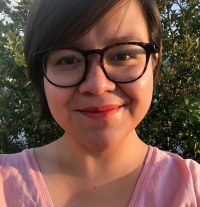Judith Sierra-Rivera
- 148 Burrowes Building
Biography
I am a specialist in Latin American, Caribbean, and U.S. Latinx representations of race, gender, and sexuality. From an anticolonial feminist perspective, with a particular focus on emotions, I study literature, art, and music from the Hispanic, Anglo, and Francophone Caribbeans, the United States, Mexico, Guatemala, and Chile.
In my book, Affective Intellectuals and the Space of Catastrophe in the Americas (Ohio State University Press, 2018), I connect five different contexts (Mexico, Chile, Puerto Rico, Cuba, and the U.S.-Central America relationship) to argue that an intellectual tradition exists in the Americas rooted in the stories, desires, and needs of those who have been systematically pushed out of the public sphere (indigenous peoples, Afro-descendants, immigrants, LGBTQ communities, and inhabitants of poverty). This argument prompts me to examine five writers whose emotional discourses during catastrophic circumstances have profoundly shaped the formation of communities organizing civil efforts to overcome crises and, more significantly, to advocate for their full political inclusion in society.
My current book-length project, A Black Hero for the Nation: Pedro Albizu Campos and the Politics of Race and Gender in Puerto Rican Anti-Colonialist Movements, focuses on Puerto Rican Nationalist leader Pedro Albizu Campos and the impact of his Black masculinity on Puerto Rican sociopolitical history and anti-colonialist movements in other contexts, such as Ireland, India, and the United States. As a politician living in poverty, Albizu Campos reflected deeply in his writings on his worthiness in relation to Puerto Rican white nationalism. By analyzing his public and private texts, a series of portraits, and how his image has been reclaimed in contemporary political insurgencies, I explore how his Black male body has become a symbol of dignidad, the ideological and emotional core of Puerto Rican anti-colonialism.
I am developing an oral history project, Centre County Otherwise: Latina Women Entrepreneurs in Central Pennsylvania, to document the lives of Latinas in central Pennsylvania. Through a series of interviews, digital mapping of their journey to the region, tracing their local networks, and conducting historical and sociodemographic research of the area, this study focuses on the evolution of the Latino population in the region during a time of polarized political debates about the benefits or risks of immigration in the United States. The project will contribute to migration and Latine feminist studies by examining how these women have helped foster better relationships between their community and other demographic groups in Centre County.
Education
Courses Regularly Taught
100 Level
3 Credits
Bachelor of Arts: Humanities
United States Cultures (US)
General Education: Humanities (GH)
GenEd Learning Objective: Integrative Thinking
GenEd Learning Objective: Key Literacies
300 Level
3 Credits
Spring 2026 Semester
Class Times
Tuesdays, Thursdays from 1:35 p.m.-2:50 p.m.
400 Level
3 Credits
400 Level
3 Credits
Spring 2026 Semester
Class Times
Tuesdays, Thursdays from 9:05 a.m.-10:20 a.m.
Prerequisite
(SPAN 100A or SPAN 200) and SPAN 253W
3 Credits
3 Credits
3 Credits
Current Graduate Advisees


Publications

Affective Intellectuals and the Space of Catastrophe in the Americas
Author(s):
- Judith Sierra-Rivera
Publication Date:
- 2018
About the Book
